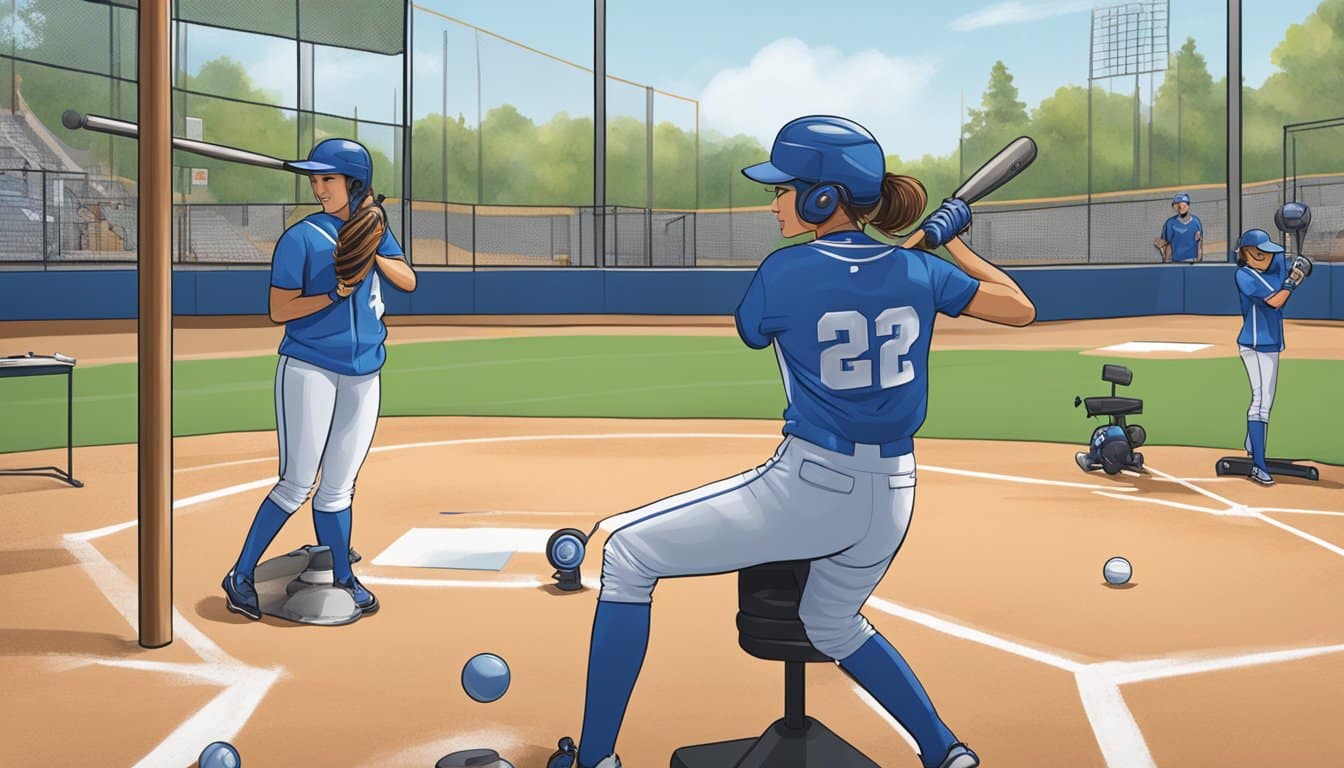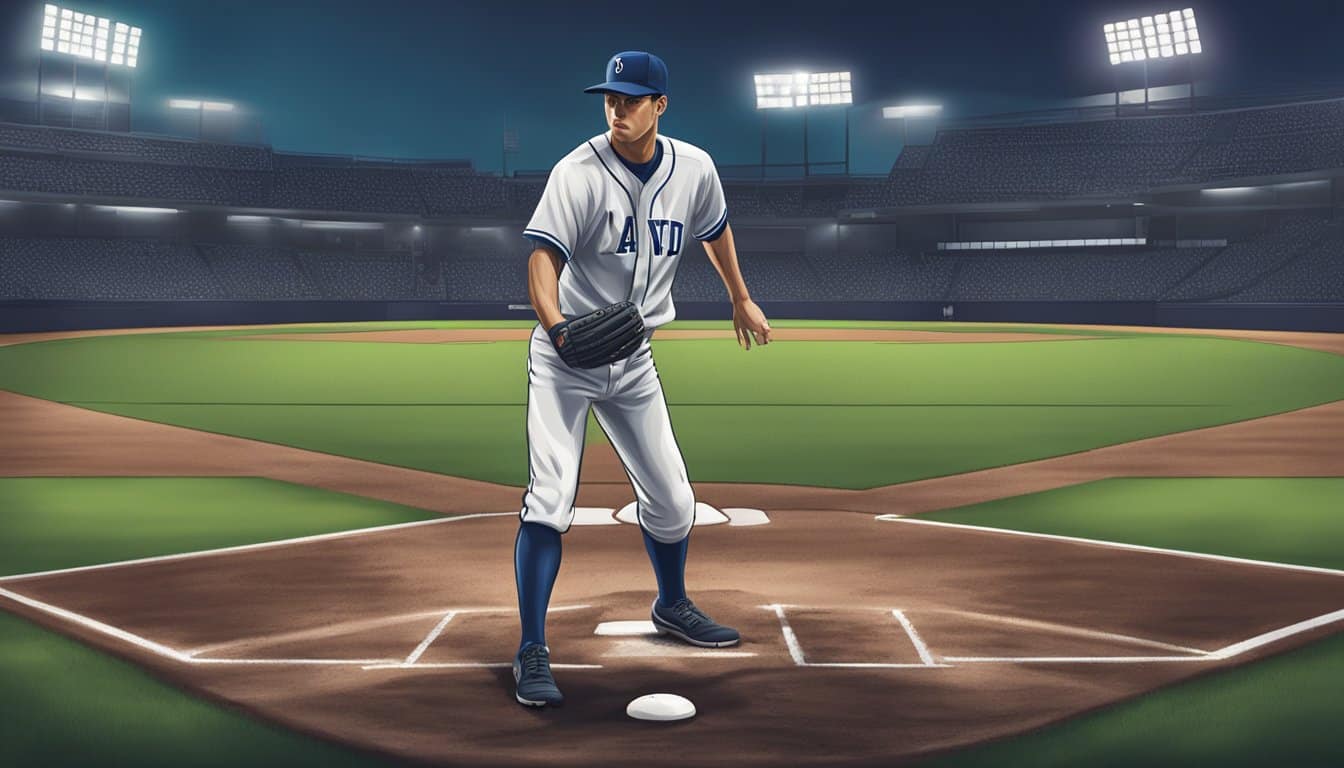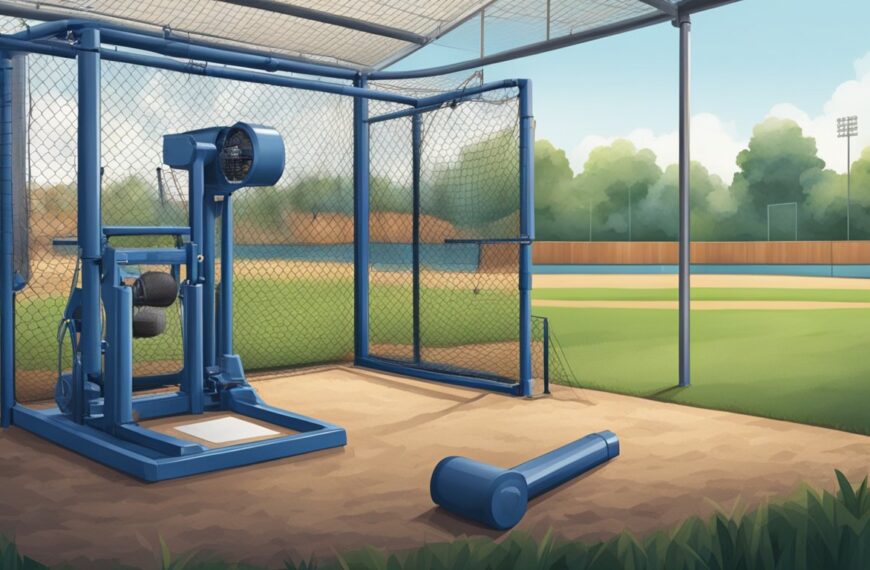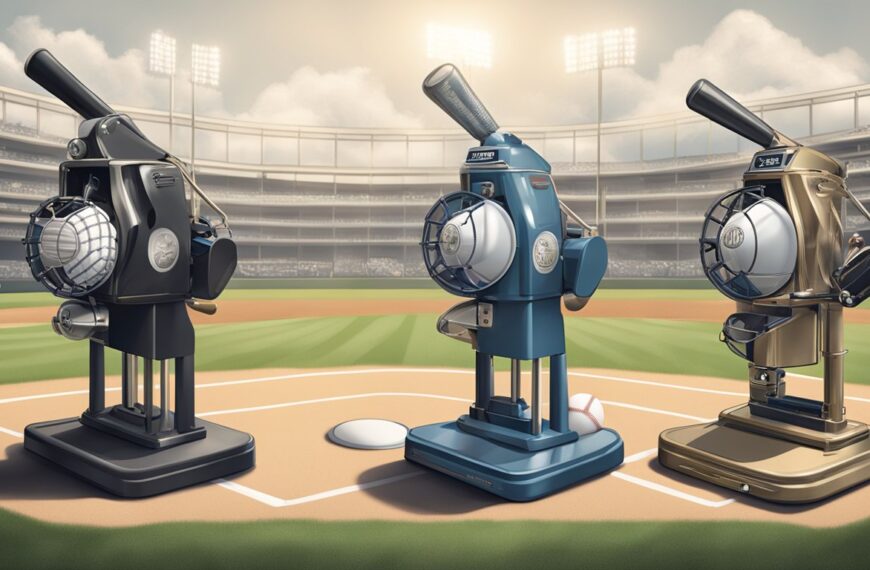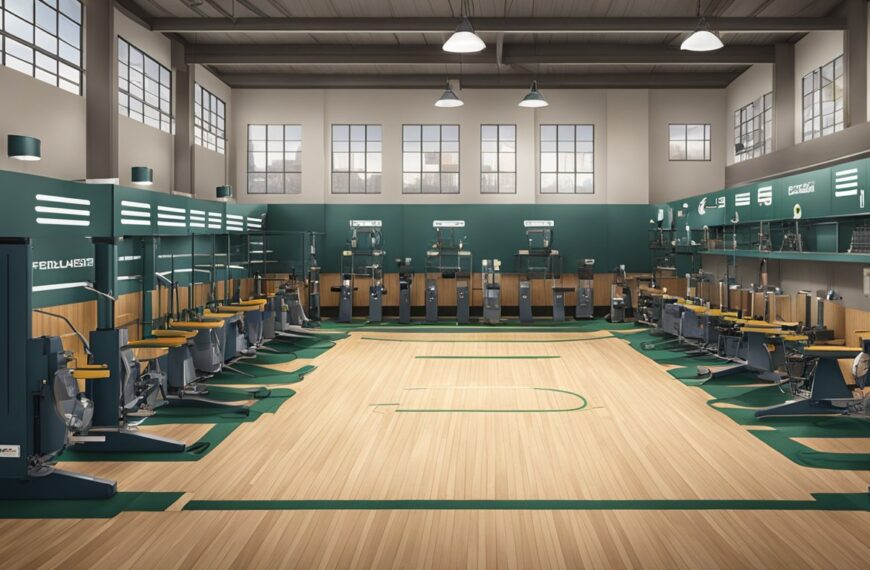Selecting the right pitching machine can be a game-changer for softball players looking to improve their hitting skills. The market offers a variety of machines designed to cater to different skill levels, ages, and budgets. To make an informed decision, it’s important to understand the various machine specifications, such as ball compatibility, speed settings, and portability. Matching these with the player’s needs can lead to more effective practice sessions and a better return on investment.
Before making a purchase, evaluating the additional equipment required is essential. Items such as nets, balls, and power sources can affect the overall usability and cost of the pitching machine setup. Additionally, potential buyers should be aware of the legal and safety regulations associated with using pitching machines, to ensure not only improvement in skill but also a safe training environment.
Key Takeaways
- Selecting a pitching machine should be based on specific player needs and machine specifications.
- A comprehensive analysis of cost, additional equipment, and safety regulations ensures a wise investment.
- Reviews and proper setup are crucial for maximizing the benefits of softball pitching machines.
Understanding Softball Pitching Machines
Selecting the ideal softball pitching machine involves understanding the types available, their key features, and choosing one that matches the player’s skill level.
Types of Pitching Machines
Softball pitching machines come in various designs, each serving different training needs. Wheel pitching machines are popular for their ability to simulate different types of pitches. They use one or more rotating wheels to propel the ball, offering speed and trajectory adjustments for diverse practice sessions. On the other end, mechanical pitching machines rely on compressed air or mechanical arms to launch balls. They are typically less expensive but offer consistent pitch placement, beneficial for fundamental batting practice.
Key Pitching Machine Features
When comparing pitching machines, several features stand out:
- Pitch Speed: The best softball pitching machines offer a range of speeds to accommodate different skill levels, typically from 30 to over 70 mph for fastpitch softball.
- Types of Pitches: Machines that can replicate various pitch types, such as fastballs, curves, and changeups, are invaluable for a comprehensive practice.
- Power Source: The power source is crucial for portability and convenience, with options including battery-powered or electric motor systems. Battery-powered models afford the flexibility to practice on any field, while those with motors require a power outlet but tend to be more powerful and consistent.
- Digital Readout Display: Machines equipped with a digital readout display allow for precise speed settings, enabling players to monitor and adjust their training intensity.
Selecting the Right Machine for Your Skill Level
Players must choose a softball pitching machine tailored to their development stage:
- For Youth players (those just starting), simplicity and safety are paramount, favoring machines that offer moderate speeds and straightforward operation.
- High School players benefit from machines that offer a greater variety of pitches and speeds to help hone their batting against advanced pitches they’ll face in competition.
- College athletes require top-quality machines that can consistently deliver a wide range of pitches at higher speeds, mimicking the challenging conditions faced in collegiate play.
By considering these factors, softball players can find the machine that best aligns with their training goals.
Evaluating Machine Specifications
When selecting a pitching machine for softball players, it is essential to examine machine specifications closely to ensure it meets the needs of the user. Key factors include the machine’s adjustability, portability, durability, and the type of power source it utilizes.
Adjustability and Versatility
Pitching machines that offer a broad range of adjustability provide players the opportunity to practice various types of pitches. Look for machines capable of throwing fastballs, sliders, curveballs, and breaking pitches with precision. The speed range should ideally cater from lower speeds for beginners to higher speeds for experienced players, often ranging between 15 to 70 mph. A good machine should also allow adjustments for distance and swivel to mimic ground balls, fly balls, and line drives.
Portability and Size Considerations
For convenience and flexibility, the portability of the machine is critical, especially if it will be transported to different locations or stored away when not in use. Check the machine’s size and weight to ensure it fits within the intended batting cage or practice area. Portable machines often come with wheels or can be disassembled, making them easy to move and set up.
Durability and Materials
A high-quality pitching machine should be durable with a long lifespan. It must be made of robust materials that can withstand outdoor elements and repeated use. Metal construction is preferable for durability. For moving parts, materials like high-grade aluminum or steel are excellent for their durability and lifespan.
Power Options and Energy Sources
There is a choice between electric and battery-powered machines. Electric machines require proximity to a power outlet, which could limit their location. In contrast, machines with a battery pack offer greater portability, though one should consider the battery life and recharge time. For consistent performance, it is important to have reliable power options and consider how the chosen energy source will influence practice sessions.
Practice Drills and Training Benefits
Using a pitching machine for softball practice offers specific advantages in player development. These include honing pitch recognition, enhancing hitting skills, and providing a broad array of training scenarios through versatile drills.
Developing Pitch Recognition
Pitching machines can be adjusted to throw various pitches such as fastballs, curveballs, and sliders, allowing batters to improve their pitch recognition. Players can repeatedly face the same pitch type to better identify the pitch’s movement and speed, advancing their ability to make split-second decisions during live games.
- Fastballs: Sets the foundation for timing and rhythm in hitting.
- Curveballs: Trains eye tracking of ball trajectory.
- Sliders: Challenges the hitter to adjust to lateral movement.
Enhancing Hitting Skills and Timing
A pitching machine provides consistent and accurate pitches, which is essential for developing hitting skills and timing. With the repetition provided by the machine, batters can perfect their swing mechanics and reinforce muscle memory to maintain rhythm.
- Swing Mechanics: Focus on foot placement, hip rotation, and follow-through.
- Timing Drills: Adjust machine speed to simulate game-like conditions.
Versatile Drill Applications
Pitching machines are not limited to pitching; they can also be tailored for defensive drills, including fly balls, pop-ups, and ground balls. This versatility makes the pitching machine a comprehensive training tool that benefits all aspects of a softball player’s game.
| Drill Type | Purpose | Setup |
|---|---|---|
| Fly Balls | Fielding high hits | High arc setting |
| Pop-ups | Catching overhead | Vertical setting |
| Ground Balls | Fielding grounders | Low angle setting |
Each drill can be configured to match the position-specific needs of players, providing a well-rounded practice session and enhancing overall team performance.
Considering Additional Equipment
When selecting a pitching machine for softball practice, it’s critical to consider the compatibility with various softball types and the necessary safety and protective gear to ensure an effective and secure training environment.
Compatibility with Softball Types
Pitching machines can vary greatly in their capacity to handle different softball types. It’s essential to confirm that the machine is suitable for the specific softballs used in practice.
- Regular Softball: Check for compatibility with standard-sized softballs. Machines should accommodate these balls without issue.
- Pitching Machine Balls: Some machines require specialized pitching machine balls. Ensure these are of high quality to avoid damaging the machine.
- Wiffle Balls and Poly Balls: Lightweight balls like wiffle or poly balls may be used for practice. Verify if the machine can pitch these without jamming or inaccuracies.
Safety and Protective Gear
Safety should never be compromised during softball practice. Acquiring the appropriate gear is non-negotiable to prevent injuries.
- Helmets: Batters should always wear helmets to protect against accidental hits from pitched balls.
- Softball Cleats: Players need cleats that provide traction and support during batting practice.
- Composite Bats: While not strictly safety gear, using composite bats matches the weight and feel of game scenarios and can reduce the risk of strain injuries.
The integration of suitable balls and protective equipment enhances the effectiveness of training while prioritizing player safety.
Cost and Value Analysis
When purchasing a pitching machine, the buyer should consider both the upfront cost and the long-term value. Price points vary widely based on features and brands, and a warranty can add substantial value to the initial purchase.
Price Range and Affordability
The price of softball pitching machines can range from a few hundred dollars for a basic model to several thousand for a high-end version. For those just starting out or with budget constraints, more affordable models priced between $200 and $500 could be sufficient. However, serious players and teams often seek advanced machines that can mimic different pitch types and speeds, which can cost upward of $1,000 to $3,000. Buyers should assess their needs against their budget to determine the best value purchase.
Warranty and Brand Reputation
The warranty offered can be a significant indicator of a machine’s quality and the manufacturer’s confidence in their product. Many reputable brands offer at least a two-year warranty on their pitching machines, signaling they stand behind their products’ durability and performance. The presence of a warranty also mitigates the buyer’s risk in the event of malfunction or early wear. Brands known for their commitment to quality and customer satisfaction may command a higher price tag but can provide better long-term value through reliability and lower maintenance costs.
Product Reviews and Recommendations
In this section, the focus is on evaluating top-rated softball pitching machines and considering the appropriate options for various levels of play, from youth to college athletics. Readers will find specific models highlighted for their attributes and suitability.
Top Rated Machines for Softball
Louisville Slugger Blue Flame Pitching Machine: This mechanical model is known for its consistency and affordability. It’s often chosen for youth and Little League practice due to its ease of use and portability. Reviews often celebrate the Blue Flame for requiring no electricity or batteries to operate.
JUGS Lite-Flite Machine: Ideal for high school and college athletes, the JUGS Lite-Flite Machine offers a range of speeds and throws both fastballs and curveballs. It is recognized for its durable construction and how it helps players improve their hitting against various pitches.
Junior Hack Attack Softball Pitching Machine: This machine accommodates players at different skill levels, from little league to college. It can throw risers, drops, and screwballs at speeds that challenge even the most advanced hitters, aiming to simulate live pitching scenarios.
Heater Sports Softball Pitching Machine: With its adjustable pitch speed, the Heater Sports model is suitable for players advancing from youth leagues to high school. It’s often remarked upon for its affordability and how it aids in both batting and fielding practice.
Considerations for Different Play Levels
Youth and Little League: Look for machines that are user-friendly and safe. Machines like the Louisville Slugger Blue Flame are preferred for their manual operation and simple adjustments.
High School: Athletes at this level benefit from machines that offer variability in pitch type and speed. The Heater Sports Softball Pitching Machine and the JUGS BP1 Softball Only Pitching Machine are conducive to this stage of development, supporting the transition to more competitive play.
College: Players require high-quality pitching machines that can mimic the speed and variety seen in top-tier games. Premium models like the Junior Hack Attack Softball Pitching Machine cater to these athletes by providing advanced features and high durability.
Setting Up Your Pitching Machine
Proper setup of a pitching machine ensures its optimal functionality for softball players. It entails considering the size of the machine, the location for installation, and compatibility with the environment.
Installation Options and Locations
- Size and Setup: When installing a pitching machine, ensure that the location can accommodate its size. A standard pitching machine requires a flat, stable surface and enough space for the player to comfortably swing the bat. Assembly should be done according to the manufacturer’s instructions, which usually involves securing the machine to the ground or a sturdy base to prevent it from tipping.
- Location: The most compatible location for a pitching machine is within a batting cage, as it provides a controlled space for the ball to be contained and protects nearby areas from errant balls. Outdoor installation should take into account weather conditions, sunlight direction, and safety considerations, including sufficient distance from bystanders and property.
Maintenance and Longevity
- Maintenance: To ensure longevity and durability, routine maintenance of the pitching machine should be performed. This includes:
- Lubricating moving parts
- Checking and tightening bolts and nuts
- Examining the electrical components and motor function for any signs of wear or damage
- Durability: Choose a pitching machine that is constructed from high-quality materials designed to withstand repeated use and various weather conditions if it will be used outdoors. Regular maintenance is vital to extend the life of the machine, prevent malfunctions, and ensure consistent performance.
Legal and Safety Regulations
When choosing a pitching machine for softball players, it is crucial to consider the legal and safety regulations to ensure compliance and protect the well-being of the athletes.
Compliance with League Rules
Little League: It is mandatory to check that the pitching machine complies with the specific regulations of the relevant softball leagues. For instance, Little League softball often has distinct requirements regarding the type and speed of pitching machines that can be used.
- Approved Equipment: Verify the machine is on the approved equipment list.
- Machine Settings: Ensure machine settings adhere to league rules for pitch speed and height.
Ensuring Player Safety
Safety Measures: The protection of players is paramount. Manufacturers must design pitching machines with safety features to prevent accidents.
- Protective Caging: Machines should include protective caging to guard against misdirected balls.
- Emergency Stop: A readily accessible emergency stop feature is a key safety component.
- Stable Design: Stability in design prevents tipping and related injuries.
In compliance with league rules and legal standards, one must not overlook the significance of routine inspection and maintenance to sustain the safety and performance of the pitching machine.
Frequently Asked Questions
Selecting the right pitching machine requires understanding key features that match the user’s needs, such as pitch speed, ball compatibility, portability, and power options.
What factors should be considered when selecting a pitching machine for softball practice?
When choosing a pitching machine, one should consider the types of pitches it can throw, adjustability for different pitch speeds and angles, durability, and ease of use. It is essential that the machine is appropriate for the skill level and age of the players.
Can the same pitching machine be used for both softball and baseball training sessions?
Not all pitching machines are interchangeable between softball and baseball due to differences in ball sizes and pitching distances. Machines designed specifically for softball or with adjustable settings for both sports are available.
What are the benefits of investing in a quality pitching machine for softball players?
A quality pitching machine offers consistent pitches, allowing players to improve hitting techniques and timing. It also enables repetitive practice without the need for a pitcher, making training sessions more efficient.
How does machine pitch speed affect the training experience for softball athletes?
Pitch speed is crucial in simulating real-game conditions. A machine that offers a range of speeds helps players prepare for various pitching styles and improves their reaction times.
What is the importance of portability and power requirements in a softball pitching machine?
Portability affords flexibility in practice locations, while power requirements determine the machine’s usability in different settings. Battery-operated machines offer portability but may have limited running time compared to electrically powered options.
How do I determine the appropriate pitching machine for different age groups playing softball?
For younger players, a machine with lower speeds and simple operation is ideal. As players mature, advanced machines with higher speeds and pitch variety become more beneficial to match their developing skills.

